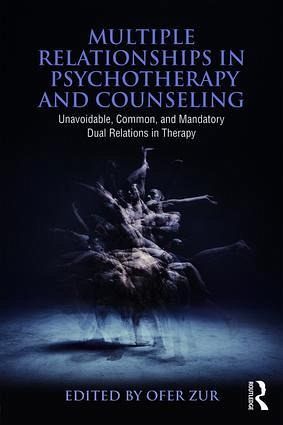
Multiple Relationships in Psychotherapy and Counseling
Unavoidable, Common, and Mandatory Dual Relations in Therapy
Herausgeber: Zur, Ofer
Versandkostenfrei!
Versandfertig in 1-2 Wochen
55,99 €
inkl. MwSt.
Weitere Ausgaben:

PAYBACK Punkte
28 °P sammeln!
This first-of-a-kind analysis will focus exclusively on unavoidable and mandated multiple relationships between clients and psychotherapists. The book will cover the ethics of a range of venues and situations where dual relationships are mandated, such as in the military, prisons/jails, and police departments, and settings where multiple relationships are unavoidable, such as rural communities; graduate schools and training institutions; faith, spiritual, recovery or 12-step, minority and disabled communities, total institutions, and sport psychology. The complexities of social network ethics ...
This first-of-a-kind analysis will focus exclusively on unavoidable and mandated multiple relationships between clients and psychotherapists. The book will cover the ethics of a range of venues and situations where dual relationships are mandated, such as in the military, prisons/jails, and police departments, and settings where multiple relationships are unavoidable, such as rural communities; graduate schools and training institutions; faith, spiritual, recovery or 12-step, minority and disabled communities, total institutions, and sport psychology. The complexities of social network ethics and digital dual relationships, such as clients becoming "friends" or "fans" on their therapists' social media pages are discussed. Finally, the book will discuss the complexities multiple roles that inevitably emerge in supervisory relationships.














